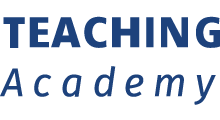Marissa E Kwan Lin
Fellow
Marissa E Kwan Lin is a Senior Lecturer at the Centre for English Language Communication (CELC) at the National University of Singapore (NUS). She has published and presented in the areas of social semiotics, multimodal discourse analysis, multiliteracies and the use of multimodality for educational purposes.
She is currently Coordinator of the University Town Writing Programme (UTWP), a rhetorically intensive, content specific writing programme that aims to engage students in scholarly discussions and debates on topics that are of social interest and relevance.
In her time at CELC, she has developed, coordinated and taught on a range of courses from undergraduate academic writing and communication modules to graduate level academic literacy courses.
Marissa is also an active researcher and recently published a monograph with Routledge entitled Discourses of Neoliberalism in Singapore's Higher Education Context: Individualist and Communitarian Perspectives, and a co-edited book Discourses, Modes, Media and Meaning in an Era of Pandemic: A Multimodal Discourse Analysis Approach.
She also serves as reviewer for peer-reviewed journals like Journal of Pragmatics, Social Semiotics, Pragmatics and Society and Frontiers in Communication.



